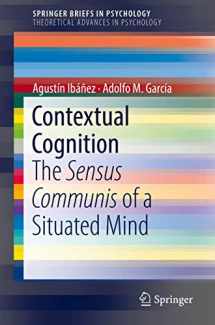
Contextual Cognition: The Sensus Communis of a Situated Mind (SpringerBriefs in Psychology)
Book details
Summary
Description
This Brief introduces two empirically grounded models of situated mental phenomena: contextual social cognition (the collection of psychological processes underlying context-dependent social behavior) and action-language coupling (the integration of ongoing actions with movement-related verbal information). It combines behavioral, neuroscientific, and neuropsychiatric perspectives to forge a novel view of contextual influences on active, multi-domain processes. Chapters highlight the models' translational potential for the clinical field by focusing on diseases compromising social cognition (mainly illustrated by behavioral variant frontotemporal dementia) and motor skills (crucially, Parkinson’s disease). A final chapter sets forth metatheoretical considerations regarding intercognition, the constant binding of processes triggered by environmental and body-internal sources, which confers a sensus communis to our experience. In addition, the book includes two commentaries written by external peers pondering on advantages and limits of the proposal.
Contextual Cognition will be of interest to students, teachers, and researchers from the fields of cognitive science, neurology, psychiatry, neuroscience, psychology, behavioral science, linguistics, and philosophy.


We would LOVE it if you could help us and other readers by reviewing the book
Book review



